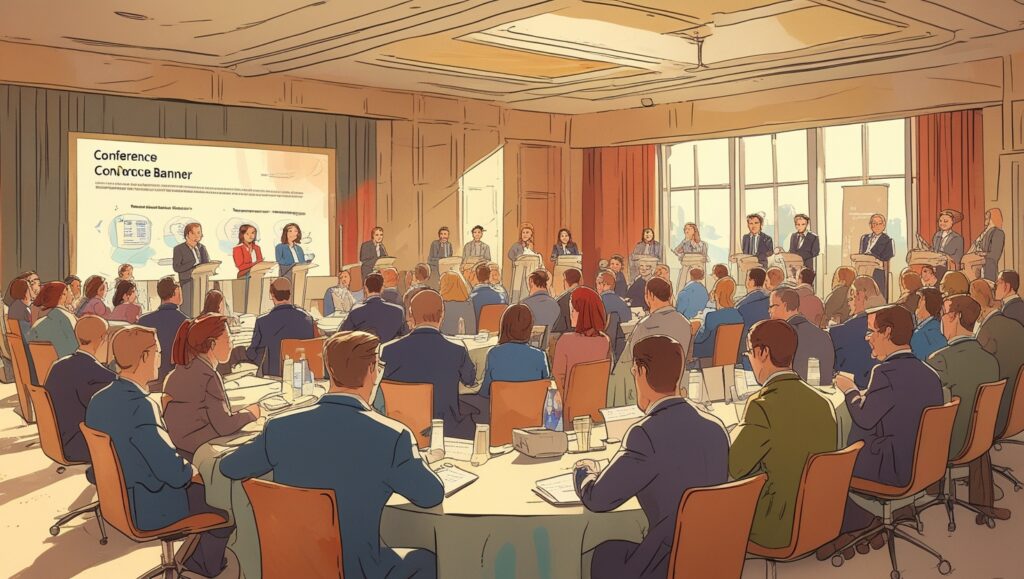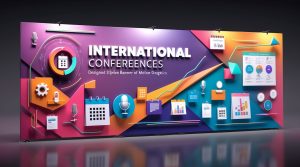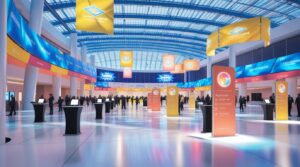The way associations run events is undergoing its most profound transformation in decades. As 2025 unfolds, professionals in physics and related disciplines are witnessing a new wave of game-changing event trends for associations. Demand for innovation, deeper engagement, and sustainability is at an all-time high. More than 75% of conference attendees expect an event to combine in-person and digital elements, and they look for events that provide networking, real value, and memorable experiences. To thrive, associations must embrace these evolving trends and craft authentic, participant-focused events that stand out in a competitive landscape.
Artificial Intelligence: Smarter, Personalized, and Efficient Events
Artificial intelligence (AI) is one of the most significant disruptors for event planning and attendee engagement in 2025.
- AI-driven agendas offer attendees sessions tailored to their research interests or professional goals.
- Predictive analytics track attendee behaviors and preferences to improve networking and content delivery.
- Chatbots and automated assistants streamline Q&A, registration, and real-time support, freeing up time for event staff.
Associations are also leveraging AI for instant language translation, sentiment analysis of feedback, and matchmaking—ensuring everyone gets a uniquely valuable conference experience.
Sustainability: Building Greener, Responsible Conferences
Sustainability is no longer optional; it is a core expectation for modern events.
- Digital-first workflows (agendas, tickets, resources) drastically reduce waste.
- Venue selection prioritizes locations powered by renewable energy.
- Carbon offset programs, efficient catering, and reusable exhibitor materials minimize the environmental footprint.
Associations that make clear commitments to sustainability see stronger partnerships with sponsors and more positive participant reviews.
Hybrid Events: Expanding Access and Participation
Hybrid event formats—blending digital platforms with face-to-face interactions—are the new norm.
- Live-streamed plenaries and workshops give global audiences access without the barriers of travel.
- On-demand session recordings and interactive forums keep learning and discussion going after the conference.
- Virtual poster sessions and remote presentations make it possible for early-career researchers and international participants to engage equally.
A successful hybrid approach ensures that in-person and online attendees feel equally valued and included.
Experiential Learning: Making Every Session Engaging
Traditional lectures are being replaced by immersive, hands-on experiences that drive knowledge retention and participant satisfaction.
- Interactive workshops tackle real-world problems using audience input.
- Gamified learning tracks reward active participation with certificates or live leaderboards.
- Mixed reality installations and demonstrations make complex physical phenomena accessible.
Participants leave with practical takeaways and stronger professional connections.
Data-Driven Networking: From Random Encounters to Valuable Connections
Event technology now enables associations to create curated networking journeys for every attendee.
- Matchmaking algorithms pair participants based on complementary research interests, goals, or expertise.
- Facilitated roundtables and digital workspaces foster collaborations that last beyond the event.
- Post-conference analytics identify the strongest new relationships and areas for follow-up.
With the right tools, associations maximize the value of every interaction.
Personalization and Member Engagement: Tailoring the Experience
No one wants a one-size-fits-all event. In 2025, personalization is key to member loyalty and engagement.
- Dynamic session recommendations, push notifications, and mobile app updates let attendees shape their own journeys.
- Real-time surveys adapt event schedules to participant feedback on the fly.
- Member-generated content—such as “lightning talks” or “poster walks”—gives everyone a stake in the event’s success.
Associations that personalize experiences see higher retention, better satisfaction scores, and wider knowledge sharing.
Decentralized, Flexible Event Models: Always-On Engagement
Rather than betting everything on a single annual conference, associations are branching out:
- Organizing a series of smaller, interconnected events through the year—each with its own focus but connected virtually.
- Hosting pop-up sessions or webinars to address breaking science trends and member interests.
- Encouraging cross-disciplinary sessions where experts from different research areas collaborate.
These approaches spread workloads, reduce travel costs, and make it easier to respond to changes in science or attendee needs.
Tech-Driven Logistics and ROI Analytics
Efficient logistics and measurable impact are in focus for event planners:
- Advanced scheduling and booking tools automate logistics.
- 5G-powered streaming ensures seamless virtual participation.
- ROI analytics track attendee engagement, session popularity, and sponsor exposure, giving associations the data needed to improve with every event.
Events that prove value to all stakeholders are more likely to attract repeat sponsorships and grow.
FAQ: Game-Changing Event Trends for Associations in 2025
Q1. What are the top game-changing trends for association events in 2025?
Artificial intelligence, hybrid events, sustainability initiatives, experiential learning, curated networking, and decentralized, year-round event models are shaping the future.
Q2. How does AI improve events for associations?
AI powers smart agendas, networking recommendations, instant translation, and automated support, making events more personalized and engaging.
Q3. Why are hybrid events now essential?
Hybrid formats lower travel barriers, expand participation, and offer greater accessibility for international or early-career attendees.
Q4. What does sustainability mean for event planning?
Eco-friendly venues, digital resources, carbon offsets, and waste reduction are essential for associations aiming to show environmental responsibility.
Q5. How can events boost networking outcomes?
Data-driven matchmaking, facilitated roundtables, and analytics-driven follow-up help participants build stronger, more relevant connections.
Q6. What is experiential learning at physics conferences?
It includes interactive workshops, live demonstrations, and gamified content that encourages active participation and deeper understanding.
Q7. How should associations measure event success?
By tracking attendee engagement, session popularity, feedback scores, and the lasting impact of both virtual and in-person interactions.
Conclusion: Future-Proofing Your Association’s Conference Strategy
Embracing these game-changing event trends for associations in 2025 will help organizations deliver smarter, more inspiring, and inclusive events. By investing in smart technology, fostering sustainable practices, and focusing on personalized, year-round engagement, associations can set new standards for value and impact in the academic community.
Start building your strategy for 2025 and empower your association to lead the future of scientific discovery.
Ready to make your mark? Register and discover more opportunities for community and career growth:
https://conferencesdaily.com/login.php















